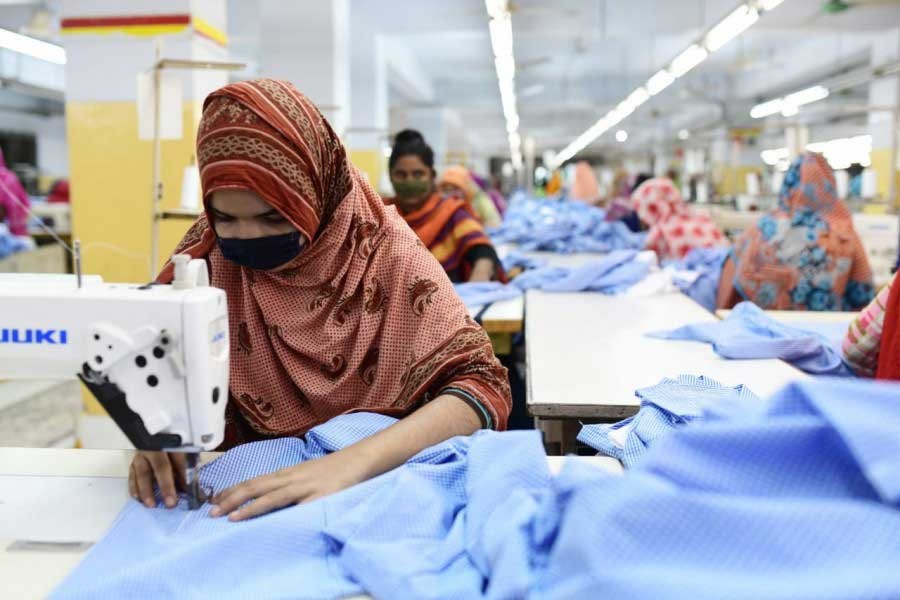
Published :
Updated :

Bangladeshi garment suppliers incurred at least US$724 million loss only in the US market in four months since Covid-19 hit the country in March, due mainly to cancellation of orders or retrospective price cuts.
This was revealed by the Center for Global Workers Rights (CGWR) at Penn State University, the US, in a research brief that said millions of workers might lose jobs as global brands are demanding price cuts and delaying payments to supplies in countries like Bangladesh.
“In Bangladesh alone, more than one million workers were adversely affected, with many being sent home from work without severance or furlough pay,” reads the brief.
Titled “Unpaid Billions”, it says trade data show apparel order volume and prices plummeted through June, driven by brands’ refusal to pay for goods they asked suppliers to make. It “painted a deeply disturbing picture of corporate irresponsibility at a moment of global crisis”.
Bangladesh saw immediate decline in its readymade garments exportsto the US market in March to $524 million,instead of a potential growth, compared to $533 million in the same month the previous year.
The country exported apparel products worth $400 million to the US in April as against $462 million in April 2019, only $166 million in May as against $521 million in May 2019 and $228 million in June as against $527 million in June 2019, according to data used in the research brief.
Bangladesh may make up to US$10 billion loss in apparel exports in 2020,from the last calendar year’s earning of US$34 billion from the major export-earning sector.
Trade data from the US and the European Union show evidence of a significant loss in value due to order cancellations – at an aggregate amount of US$16.2 billion in the said four months.
“In the process, millions of workers faced reduced hours of work and thus reduced income, temporary suspension of work, or job termination,” the report observed.
It pointed out that buyers, in the initial weeks of the crisis, reneged on their financial commitments on roughly US$40 billion in orders – with devastating implications for suppliers and workers.
Analysing suppliers’ accounts or leaked correspondence with buyers, the research found cancellation of orders even after making of products, postponement of delivery and payment, and retroactive price discounts.
In an online survey of Bangladesh employers, styled “Abandoned?! The Impact of Covid-19 on Workers and Businesses at the Boom of Global Garment Supply Chains” in March, the center’s director Mark Annermentioned that it illustrated the extreme fragility of a system based on decades of buyers squeezing down on prices paid to suppliers: factory closures, unpaid workers with no savings to survive the hard times ahead.
Al Jazeera on Friday report: In a survey of 75 factories in 15 countries, suppliers said they had to wait an average of 77 days for payment, compared with 43 days before the pandemic, raising fears of further factory closures in an industry employing 60 million people worldwide.
“We are seeing a dramatic squeeze down of price, reduced orders and late payment,” Mark Anner was quoted to have said.
Fashion companies cancelled orders worth billions of dollars earlier this year as the coronavirus shuttered stores worldwide, leading to wage losses of up to $5.8billion, Al Jazeera said referring to pressure group Clean Clothes Campaign.
khawaza@gmail.com


 For all latest news, follow The Financial Express Google News channel.
For all latest news, follow The Financial Express Google News channel.